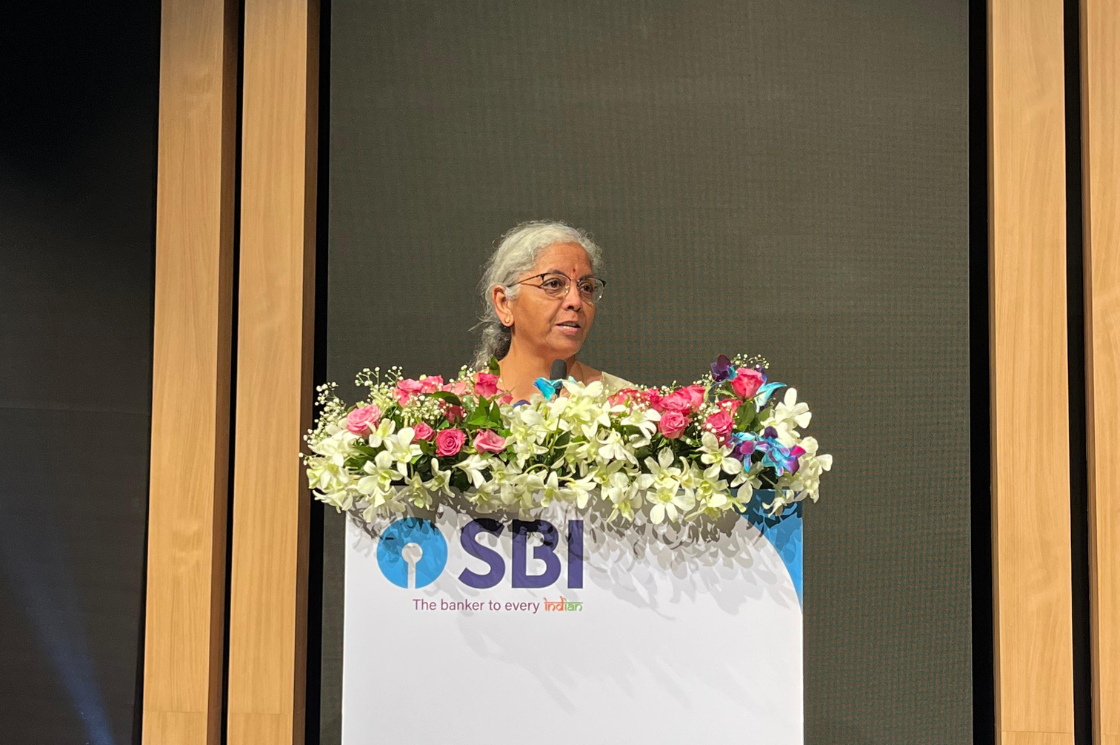
(Photo : NirmalaSitharaman-X )
On Monday, Union Finance Minister Nirmala Sitharaman urged banks to lower interest rates to make borrowing more affordable, emphasizing this need as the government pushes for greater industrial capacity building. She described the current high cost of borrowing as "very stressful".
"When you look at India's growth requirements, you can have so many different voices coming out and saying, the cost of borrowing is really very stressful. At a time when we want industries to ramp up and move building capacities... bank interest rates will have to be far more affordable," Sitharaman said at State Bank of India (SBI's) annual business and economic conclave.
Commerce Minister Piyush Goyal shared a similar viewpoint last week, urging the Reserve Bank of India (RBI) to reduce rates to boost the economy. He also recommended that the RBI consider excluding food prices when making decisions on monetary policy, as they have been a significant driver of inflation.
It's worth noting that most commercial banks set their lending rates based on the RBI's monetary policy, with many loans tied to the repo rate. Currently, inflation remains above the RBI's target of 6 percent, with October's figure at 6.2 percent, reducing the likelihood of an immediate rate cut.
Impact of High Inflation on Economic Growth
Inflation and economic growth are closely linked, especially in the context of interest rate policies. Persistent inflation above the RBI's comfort threshold of 6 percent, as seen with October's 6.2 percent rate, poses a challenge to economic growth.
Sitharaman noted that the rise in inflation is largely due to fluctuations in a few perishable items, with core inflation - excluding food and energy - remaining more manageable at around 3-4 percent. While she stayed away from debating whether food prices should influence monetary policy, she did stress that the government is actively tackling supply-side challenges for essentials like pulses and edible oils.
She also spoke about India's recurring supply chain hiccups, blaming them on cyclical factors. To tackle this, the government is focusing on better storage infrastructure to reduce price volatility. Her message? Inflation is under control, and measures are in place to cushion its effects on everyday citizens.
Additionally, Sitharaman asked banks to focus on their core function of lending, criticising the practice of mis selling insurance products. She noted that mis selling adds indirect costs to borrowing for customers and undermines trust in the banking system. "Trust in banks can only be built through transparent, ethical practices and clear communication with customers," she said.
She also set ambitious lending goals for micro, small, and medium enterprises (MSMEs): ₹5.75 lakh crore for FY25, ₹6.12 lakh crore for FY26, and ₹7 lakh crore for FY27.
In her remarks, she also pointed to the banking sector's success in account opening, urging banks to now focus on channelling savings into investments, risk capital formation, insurance coverage, and wealth management services.
Additional Remarks
On the international front, Sitharaman voiced concern about nations stepping back from climate change discussions, labeling this trend as "worrying." She also criticized unilateral environmental actions, like those of the European Union, which aim to encourage responsible practices but act independently. Emphasizing the need for unity, she stated, "climate change is a global issue that requires international cooperation, not isolated measures,."









